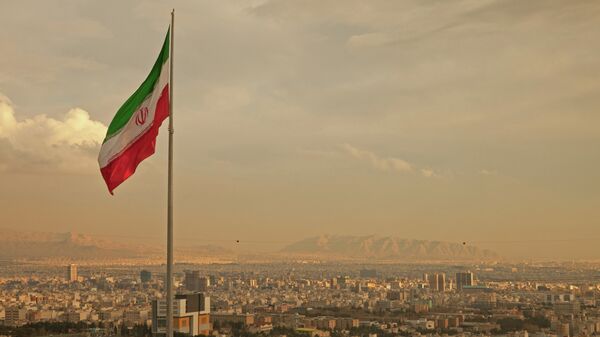An exultant Iran hailed a UN Security Council vote on Friday rejecting a US bid to extend an arms embargo on the Islamic republic.
After only two of the Council's members supported Washington’s resolution to extend the embargo, that is set to expire in October under the 2015 Joint Comprehensive Plan of Action (JCPOA), from which the US unilaterally withdrew in May 2018, Iranian Foreign Ministry spokesman Abbas Mousavi tweeted on Saturday that “America has never been so isolated."
🇮🇷در تاریخ ۷۵ ساله سازمان ملل سابقه نداشته که #آمریکا تا این حد منزوی باشد. برغم همه سفرها، فشارها و دوره گردی ها، آمریکا توانست فقط یک کشور کوچک را با خود همراه کند. دیشب #دیپلماسی_فعال_ایران در کنار استحکام حقوقی #برجام آمریکا را برای چندمین بار در شورای امنیت شکست داد. pic.twitter.com/wElbpVE2SG
— S.A MOUSAVI (@SAMOUSAVI9) August 15, 2020
"Despite all the trips, pressure and the hawking, the United States could only mobilise a small country (to vote) with them," said Mousavi. The spokesman referenced failed efforts by US Secretary of State Mike Pompeo to drum up support for the resolution.
ترجمه:جامعه بینالملل یک بار دیگر و با صدایی رسا تلاش بیپروا و بیحاصل ایالات متحده برای تضعیف اعتبار شورای امنیت سازمان ملل را رد کرد. رژیم آمریکا باید از شکستهای مطلق خود درس گرفته و از بیآبرو کردن خود در سازمان ملل دست بردارد، در غیراینصورت منزوی خواهد شد، حتی بیشتر از الان
— S.A MOUSAVI (@SAMOUSAVI9) August 15, 2020
The 15-member UN Security Council on Friday resoundingly defeated the Washington resolution to indefinitely extend the embargo on Iran, with the Trump administration getting support from only the Dominican Republic, reported AP.
The vote was two in favor, two against and 11 abstentions, leaving it short of the minimum nine votes of support required for adoption.
Efforts to extend the embargo were opposed by Iran, Russia and China.
The Trump administration slammed the decision and vowed to follow up on its promise to "stop at nothing" to prolong the blockade.
US ambassador to the UN, Kelly Craft, said in a Friday statement that the United States “has every right to initiate snapback of provisions of previous Security Council resolutions."
“Snap back” was envisioned under a scenario where Tehran was proven to be in violation of the JCPOA, under which it received sanctions relief in exchange for curbs on its nuclear program.
The decision not to extend the arms embargo on Iran was criticised by US Secretary of State Mike Pompeo, who deplored that the UNSC "failed to uphold its fundamental mission set" by snubbing the resolution.
"It [UNSC] rejected a reasonable resolution to extend the 13-year old arms embargo on Iran and paved the way for the world’s leading state sponsor of terrorism to buy and sell conventional weapons without specific UN restrictions in place for the first time in over a decade," said Pompeo.
The Islamic Republic of Iran has faced a US conventional arms embargo since 2007, with the accord set to expire on 18 October under the terms of the 2015 nuclear deal between the Islamic republic and world powers.
President Donald Trump unilaterally withdrew the United States from the Joint Comprehensive Plan of Action (JCPOA) in 2018, citing Iran’s alleged violations of its terms, and reinstated crippling sanctions on the Islamic Republic.

The agreement had envisaged Iran scaling back its nuclear programme in exchange for sanctions relief.
The five other powers — Russia, China, United Kingdom, France and Germany — have remained committed to the deal.
US President Donald Trump exited from the agreement unilaterally in May 2018, causing Tehran to step away from its nuclear commitments, while noting, however, that the country's nuclear program remains exclusively peaceful.


